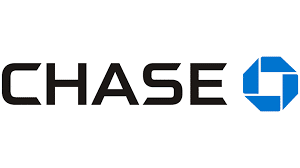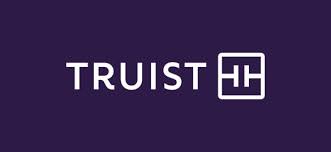Banks don’t market checking accounts to older adults at quite the same rate as they do to students, small-business owners, or general audiences looking for free checking options insured by the FDIC.
But senior-friendly checking accounts do exist, and they’re more common than you might imagine. Look no farther than the checking accounts on this list, backed by some of the best banks for seniors around.
All are either free of monthly maintenance fees for all account holders or have easy-to-attain maintenance fee waivers.
Best Checking Accounts for Seniors
A few of the top FDIC-insured checking accounts for seniors are age-restricted, meaning they’re not open to applicants who don’t meet the sponsor bank’s definition of “senior.”
Others are not age-restricted but either offer perks specifically for seniors or simply provide a favorable mix of features and benefits (such as high-interest yields) for older account holders.
Chase Total Checking®
Truist One Checking
U.S. Bank Smartly® Checking


TD Bank 60 Plus Checking


Ally Bank Interest Checking
Methodology: How We Select the Best Bank Accounts for Seniors
Our bank account evaluation process considers several important factors, including cost, rewards, yield, capabilities, and overall ease of use. Here’s how we think about them.
Account Fees & Waiver Options
Our rule about bank account fees is simple: the lower, the better. And none is best.
Most bank accounts have some hidden fees lurking in their account disclosures, though you probably won’t encounter them if you maintain a positive balance and don’t need to make any unusual financial maneuvers.
A smaller but still significant number charge monthly maintenance fees ranging from $5 to more than $30. You can usually get these fees waived with qualifying minimum transaction volumes or balances, but that’s easier said than done for some people.
So wherever possible, we look for senior-friendly bank accounts with no maintenance fees at all. When we encounter an otherwise great account that charges maintenance fees, we make sure they’re easy for regular people to waive.
Account Opening Bonus
Plenty of bank accounts offer one-time new customer promotions to entice sign-ups. These can range anywhere from a few dollars to more than $1,000, and they’re absolutely worth pursuing if you can meet the requirements.
Unfortunately, most senior-friendly bank accounts don’t have great account opening promotions. But we prefer accounts that do and order this list accordingly.
Rewards & Yield
High-yield checking accounts are increasingly common these days. Unfortunately, few senior-friendly checking accounts pay much in the way of interest. But some tie into high-yield savings accounts, and others offer debit card rewards or other spending-based incentives. Those are our favorites.
Mobile Features & Capabilities
Responsive bank websites and full-feature mobile apps aren’t “nice to have” anymore — they’re basic requirements of a high-quality bank account. We’ve ordered this list accordingly, focusing on senior-friendly accounts that let you manage your money from anywhere with an internet connection.
Other Account Types Available
Convenience is important no matter what stage of life you’re in, but it’s especially clutch for busy seniors: folks who travel often, spend tons of time with grandkids, or maybe even live in different parts of the country at different times of year.
With that in mind, we look for senior-friendly checking accounts at banks with a full lineup of checking, savings, and other account types. Banks with in-house investment services are always a plus.
Checking Accounts for Seniors FAQs
If you’re looking for a new bank account as you move into your golden years, or wondering whether your current account will continue to serve you well over time, you probably have some questions. These are the most common, along with our expert answers.
What’s the Interest Rate on the Best Senior Bank Accounts?
Unfortunately, most senior-friendly checking accounts don’t pay interest at all. Those that do tend to pay only a token interest rate that doesn’t change much with prevailing rates, say 0.10% or 0.15% APY.
That’s why it’s useful to look for senior checking accounts at banks with a full complement of other account types, including high-yield savings accounts, money market accounts, and CDs.
How Much Do Senior Checking Accounts Cost Each Month?
The best senior-friendly checking accounts have no monthly maintenance fees or other recurring fees. They’re free to use unless you need to perform a task that carries a fee, such as make an out-of-network ATM withdrawal.
Some senior checking accounts charge monthly maintenance fees but waive them if you keep a certain minimum balance or use your debit card a certain amount each month. If you go with one of those, make sure you understand the waiver requirements so you’re not surprised by a tacked-on fee.
Can You Write Checks Out of Your Account?
Some senior checking accounts come with paper checks, which is important for folks who prefer to pay the old-fashioned way. Even if yours doesn’t, you can generally order a bank check from the institution or use their online bill pay service to send a physical check to your payee.
Are Senior Bank Accounts As Mobile-Friendly As Others?
The best ones are. Those at smaller financial institutions are more likely to be behind the times, but even they’re catching up. If mobile capabilities are important to you, be sure to read reviews of each bank’s mobile app and test out their websites on your mobile device if possible.
Final Word
Mainstream money management won’t ever be off-limits to older Americans, of course. If you’re happy with your current bank or credit union and none of the checking options on this list excite you, you can keep your money where it is as long as you’d like.
You’re also free to move your money to another high-yield checking or savings account not listed here, explicitly senior-friendly or otherwise — like one of these leading rewards checking accounts from ever-popular institutions like Discover Bank and Citi.
Still, it’s surely nice to know that some banks and credit unions do prioritize older Americans’ unique financial needs.
Financial institutions should recognize just how much work their older customers have put in to get where they are — whether that’s enjoying a comfortable retirement, preparing a graceful exit from the workforce, or gearing up for the next great career challenge.



